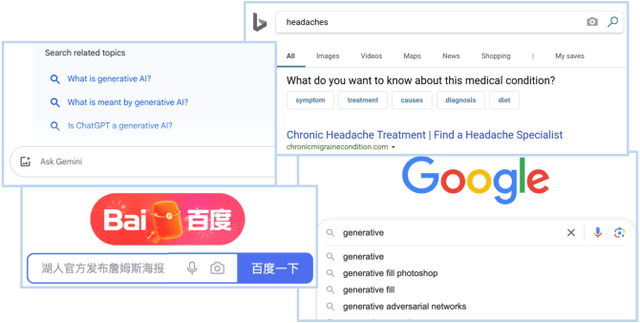From Prompting to Alignment: A Generative Framework for Query Recommendation
Paper and Code
Apr 14, 2025



In modern search systems, search engines often suggest relevant queries to users through various panels or components, helping refine their information needs. Traditionally, these recommendations heavily rely on historical search logs to build models, which suffer from cold-start or long-tail issues. Furthermore, tasks such as query suggestion, completion or clarification are studied separately by specific design, which lacks generalizability and hinders adaptation to novel applications. Despite recent attempts to explore the use of LLMs for query recommendation, these methods mainly rely on the inherent knowledge of LLMs or external sources like few-shot examples, retrieved documents, or knowledge bases, neglecting the importance of the calibration and alignment with user feedback, thus limiting their practical utility. To address these challenges, we first propose a general Generative Query Recommendation (GQR) framework that aligns LLM-based query generation with user preference. Specifically, we unify diverse query recommendation tasks by a universal prompt framework, leveraging the instruct-following capability of LLMs for effective generation. Secondly, we align LLMs with user feedback via presenting a CTR-alignment framework, which involves training a query-wise CTR predictor as a process reward model and employing list-wise preference alignment to maximize the click probability of the generated query list. Furthermore, recognizing the inconsistency between LLM knowledge and proactive search intents arising from the separation of user-initiated queries from models, we align LLMs with user initiative via retrieving co-occurrence queries as side information when historical logs are available.
 Add to Chrome
Add to Chrome Add to Firefox
Add to Firefox Add to Edge
Add to Edge